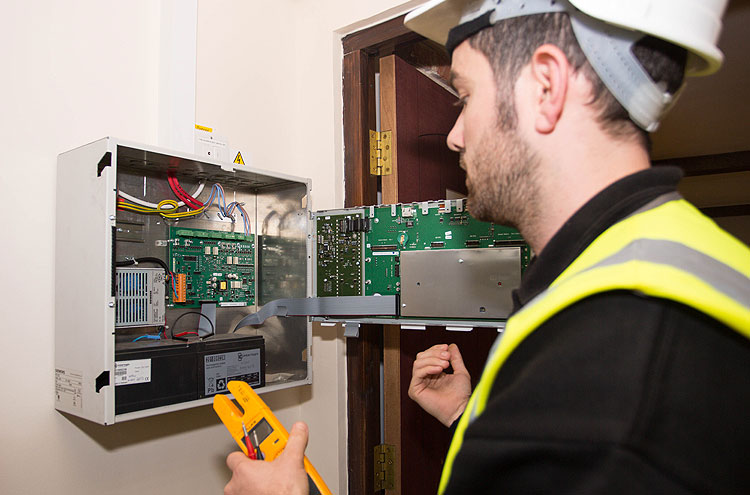- PAT Testing Frequency: Appliances used daily in high-risk environments (e.g., power tools) need more frequent testing (monthly visual checks, 6-month specialist tests), while low-risk devices (e.g., printers) require annual visual checks and 5-year specialist tests.
- Visual & Specialist Checks: Basic checks include examining cables, plugs, and fuses for damage. Professional testing ensures safety with tests like insulation resistance and earth continuity.
- Benefits: Regular PAT testing reduces fire risks, ensures equipment safety, prevents costly repairs, and may lower insurance premiums by demonstrating compliance with health and safety regulations.
Portable appliance testing (PAT) is a crucial aspect of maintaining the safe usage of electrical equipment and complying with health and safety standards.
It applies to any electrical equipment which is plugged into a standard wall socket, not just what you may think of as prototypical appliances; for example, it would encompass testing of devices like computers, photocopiers, vacuums, power tools and even arcade games.

PAT testing is a great way to meet the requirements of the Electricity at Work Regulations (1989) which is legislation making it mandatory to keep electrical equipment in the workplace in safe working order.
It is up to the individual business to decide how to achieve and demonstrate their equipment is in a safe condition. However, PAT testing has been developed to cover all facets of electrical appliance safety and is therefore the ideal option to make sure your devices do not pose any dangers to their users.
What is PAT testing?
PAT testing comprises of visual checks and testing procedures being carried out on an electrical appliance. Often, visual checks are all that is necessary to determine whether the appliance is in good working order.
Any competent individual who has sufficient training can carry out this visual inspection – many companies will have a designated member of staff who meets these criteria carry out basic testing. A visual PAT could cover checking:
- Cables and flexes for damage
- Plugs and equipment for damage, including signs of overheating
- Plugs are wired correctly
- Fuses are rated correctly
Specialist testing procedures are needed periodically to ensure the appliances are in safe working order.
This testing should be carried out by a professional and will generally involve the use of specialist equipment. The tests depend on the equipment being checked, but can include:
- Insulation resistance test
- Earth continuity test
- Earth resistance test
- Polarity check
- Applied current test
The frequency of appliance checking depends greatly upon their regularity and environment of use, and it is up to the business owner to choose a responsible testing schedule.
For example, potentially dangerous equipment which is used daily in high risk environments – such as power tools – will need to be checked more frequently than low use and low risk devices, for example a printer.
Using these examples, one might carry out monthly visual inspections on power tools with a 6 month specialist testing schedule, whereas the printer may only require annual visual inspections and a 5 year specialist testing schedule.
Labelling your appliances with their test dates is a good idea to provide a schedule reminder and proof of testing.
What are the benefits of PAT testing?
There are several benefits of regular PAT testing, the most significant of which is the reduction in the likelihood of an electrical fire occurring.
With regular inspections and testing, the risk of appliances falling into disrepair and becoming hazardous is greatly reduced.
Consequently, any need for maintenance should be identified and carried out before problems get too serious, preventing the need for costly, large scale repairs or complete replacements down the line.
Another advantage of having regular, scheduled PAT testing is that it is appreciated by insurance companies.
They recognise the worth of regular testing in contributing towards workplace health and safety and fire hazard reduction.
Demonstrably safe workplaces may in fact receive reduced premiums on their insurance.
However, without meeting the legal requirements of keeping your electrical appliances in safe working condition, insurance companies could reduce, or even refuse, a payout in the event of such equipment causing damage.
Protect & Detect is a leading fire safety and security company, servicing Ipswich, Colchester, Cambridge, Bury St. Edmunds, Chelmsford and beyond.
Protect & Detect offers a wide range of fire safety and security services including; fire alarms, fire extinguishers, burglar alarms, intruder alarms, fire sprinkler systems, access control, door entry systems, CCTV, barriers, nurse and warden calls. Contact our friendly team today for a quick quote.

